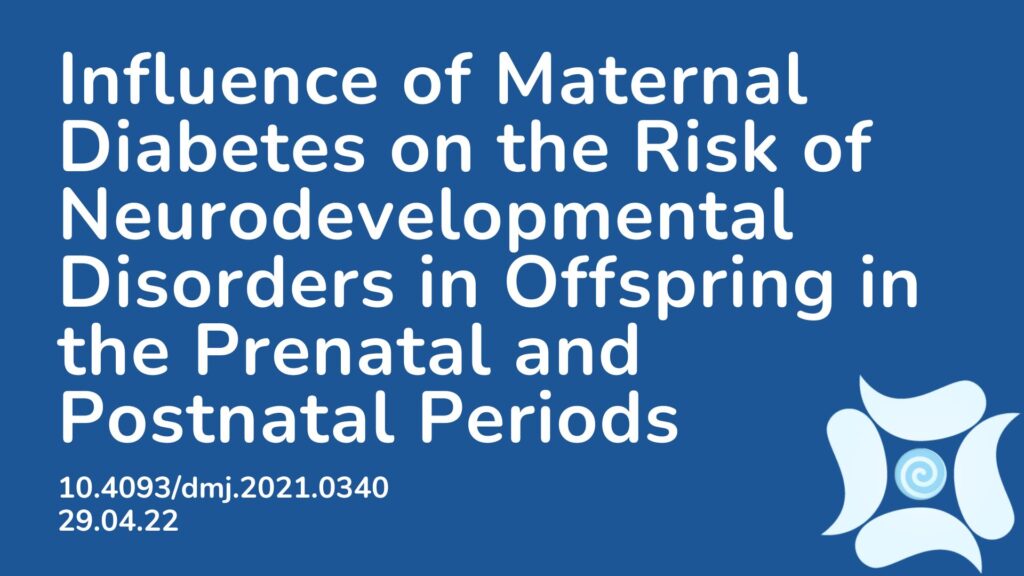Summary: Gestational diabetes mellitus (GDM) has a global prevalence of up to 10%, making it one of the most common complications during pregnancy. It is well established that a GDM diagnosis has been associated with a number of advserse outcomes such as pre-eclampsia, premature birth and more, however this paper explores whether it may also lead to neurodevelopmental disorders in the offspring later on in life. The results show that prenatal exposure to GDM increases the risk of Attention-deficit/hyperactivity disorder (ADHD) in the offspring. It also showed that this was specific to prenatal exposure and to GDM, as postnatal exposure to Type 2 Diabetes was not related to the development of ADHD. The median follow-up of the children was 18.2 years and a total of 3,123 pregnancies of just one child were included. Given that GDM has a known potential lifestyle and dietary related risk factor, not being within a healthy weight range, this paper supports the idea that treating risk factors for diabetes is another way to manage risk factors for neurodevelopmental disorders in children.
Abstract:
Background: This study aimed to evaluate the influence of maternal diabetes in the risk of neurodevelopmental disorders in offspring in the prenatal and postnatal periods.
Methods: This cohort study included singleton gestational diabetes mellitus (GDM) pregnancies >22 weeks’ gestation with live newborns between 1991 and 2008. The control group was randomly selected and matched (1:2) for maternal age, weeks of gestation and birth year. Cox regression models estimated the effect of GDM on the risk of attention-deficit/hyperactivity disorder (ADHD), autism spectrum disorder (ASD), and maternal type 2 diabetes mellitus (T2DM). Moreover, interaction between maternal T2DM and GDM-ADHD relationship was evaluated.
Results: Children (n=3,123) were included (1,073 GDM; 2,050 control group). The median follow-up was 18.2 years (interquartile range, 14.2 to 22.3) (n=323 with ADHD, n=36 with ASD, and n=275 from women who developed T2DM). GDM exposure was associated with ADHD (hazard ratio [HR]crude, 1.67; 95% confidence interval [CI], 1.33 to 2.07) (HRadjusted, 1.64; 95% CI, 1.31 to 2.05). This association remained significant regardless of the treatment (diet or insulin) and diagnosis after 26 weeks of gestation. Children of mothers who developed T2DM presented higher rates of ADHD (14.2 vs. 10%, P=0.029). However, no interaction was found when T2DM was included in the GDM and ADHD models (P>0.05). GDM was not associated with an increased risk of ASD (HRadjusted, 1.46; 95% CI, 0.74 to 2.84).
Conclusion: Prenatal exposure to GDM increases the risk of ADHD in offspring, regardless of GDM treatment complexity. However, postnatal exposure to maternal T2DM was not related to the development of ADHD.
Article Publication Date: 29.04.22
DOI: 10.4093/dmj.2021.0340




